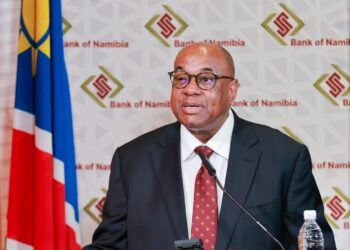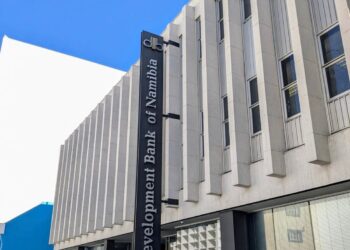
Hyphen Hydrogen Energy (Hyphen) says the Namibian government acquired the 24% equity uptake in the company for merely N$250 and would only need to finance the equity within the next two years.
 The green hydrogen development company’s CEO Marco Raffinetti said the government must then determine whether it will actively participate in the equity or explore other options.
“Whether they are going to sell their shares or borrow money to be able to pay the share of the equity is still a decision that the government needs to make,†Raffinetti said.
Notably, the European Investment Bank has already expressed its readiness to provide N$1 billion (€500 million) in funding on favourable terms if the government chooses to participate in the equity.
Raffinetti expressed confidence in the project’s potential, saying: “We firmly believe that we would want to proceed with the project because we wouldn’t be spending almost N$2 billion to do that if we didn’t think it was a good idea.”
The project cost is estimated at about N$1.9 billion (€93 million), consequently, the government’s 24% share of this cost amounts to N$471million (€23 million), which the government is not required to commit to immediately.
Instead, the CEO clarified that they will make the decision on whether to proceed with the investment in two and a half years.Â
“By the end of the feasibility study, the value of these shares is expected to be substantially higher. This means the government essentially obtained these shares for free and could later decide whether to retain, sell, or dilute its interest based on the project’s outlook at that time,” he explained.
“The decision would be made in the future, based on the project’s success and equity’s potential value,†he said.
He urged everyone to understand that the government had not been pressured to make any financial decisions at this stage and likened the current situation to a “free option.”Â
“Overall, the Namibia government’s 24% equity uptake in Hyphen Hydrogen remains a significant milestone, with the final decision on investment yet to be made. As the project progresses, the government will assess its options and determine the best course of action to secure a favourable return on its investment,†Raffinetti said.Â
The government earlier this month officially notified Hyphen of its intent to take a 24% equity making it a co-investor, Finance and Public Enterprises Minister Iipumbu Shiimi announced the multibillion-dollar landmark deal.Â
The decision by the government to exercise its rights by taking up the shareholding comes after it managed to secure €40 million (N$850 million) in grant funding from Invest International, to be channelled through a sovereign wealth fund, SDG Namibia One, which will soon be established.
Namibia’s Environment Investment Fund partnering with two Dutch organisations, Climate Fund Managers and Invest International, will oversee the fund operations.Â
SDG Namibia One is a bespoke blended financing infrastructure fund, which will look to raise money from local institutional investors and investors from around the world to develop Namibian green hydrogen projects and related infrastructure, stated the Minister.
Recently the government signed a Feasibility and Implementation Agreement with Hyphen paving the way to begin with the groundwork.
Through this agreement, the government is responsible for ensuring that Namibia is equipped with the necessary legal, fiscal and regulatory environment to enable the implementation of the project.
Hyphen is responsible for the technical, financial, environmental, social and commercial delivery of the project which, if finally approved by GRN, will then be implemented by Hyphen.
The US$10 billion (N$187billion) project is planned to be developed in phases, at full development targeting 350,000 metric tonnes of green hydrogen production a year from ~7GW of renewable generation capacity and ~3GW electrolyser.Â
The project once fully developed will employ an estimated 3,000 people, with 15,000 construction jobs supported over the four-year construction period. Over 90% of these jobs are expected to be filled by local Namibians.
Â
Â
Â
Â
Â
Â
Â
Â











